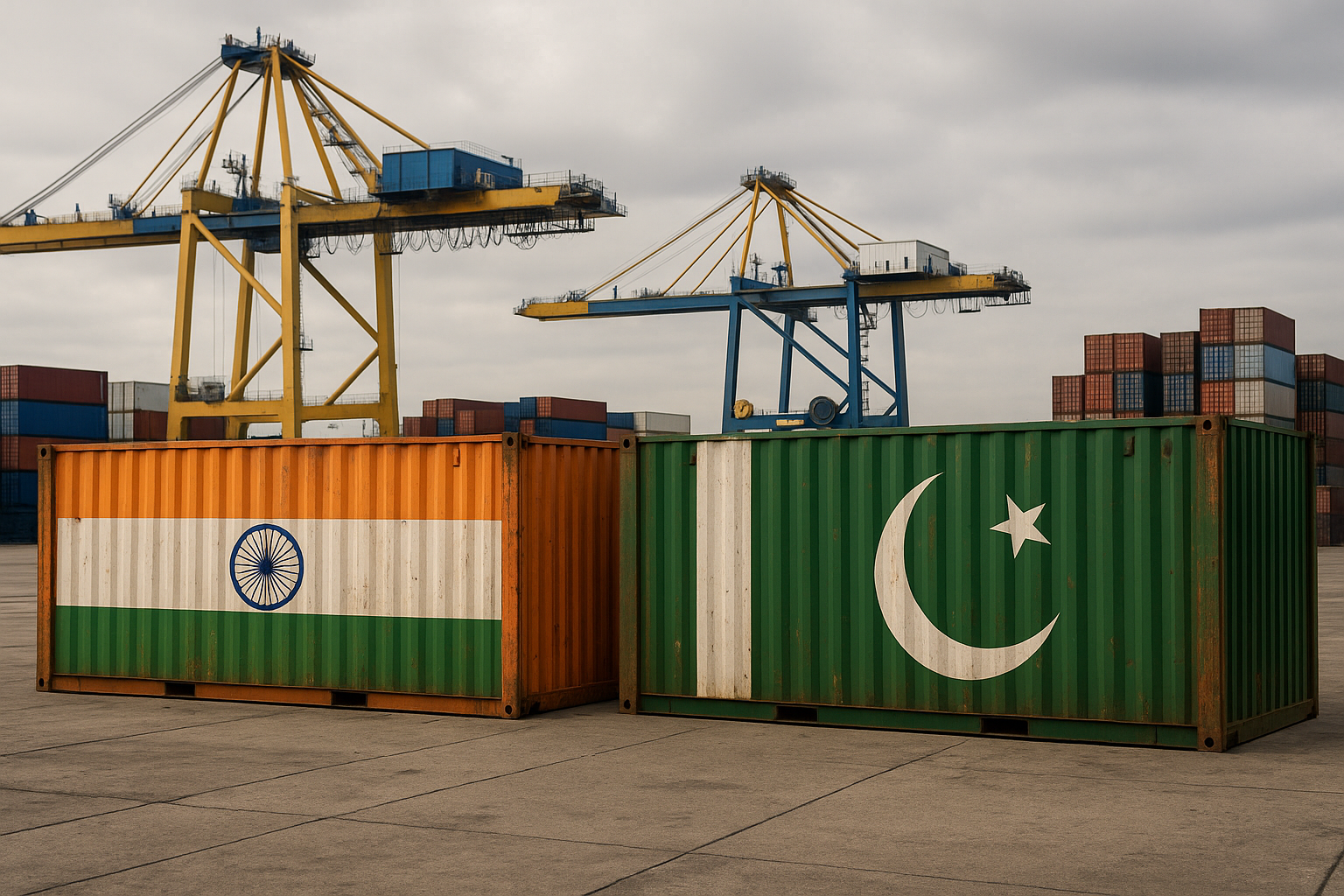
06 May Geopolitical Tensions Disrupt India–Pakistan Shipping Routes: What You Need to Know
Amid escalating geopolitical tensions between India and Pakistan, the regional logistics and shipping landscape is undergoing significant disruption. Reciprocal port bans now prohibit vessels from calling at each other’s ports, bringing container movement and port operations between the two countries to a standstill.
Key Impacts on Regional Logistics
- Vessel Omissions Across Major Carriers Leading ocean carriers—including CMA CGM, COSCO, ONE Line, and Hapag-Lloyd—have announced the suspension of scheduled calls to affected ports in India and Pakistan. No alternative port routing has yet been confirmed by these carriers.
- MSC Response MSC is currently the only carrier to reroute operations. Ships previously scheduled to call at Mundra Port are now being redirected via Colombo, offering a limited workaround in response to the evolving restrictions.
- No Current Port Activity At present, cargo loading and unloading is fully suspended between the two nations for all carriers impacted by the bans.
Operational Advisory for Clients
To mitigate the disruption, shippers and freight forwarders should prepare for:
- Rerouting via Transshipment Hubs Alternate ports such as Colombo (Sri Lanka), Jebel Ali (UAE), and Port Klang (Malaysia) may be used, depending on carrier availability.
- Transit Time & Cost Implications Expect longer lead times, potential customs delays, and possible rate volatility in the weeks ahead.
- Ongoing Communication We recommend staying in close contact with your carrier representatives and logistics partners to monitor scheduling updates, changes in port rotation, and newly released advisories.
No Disruption to Canadian Shipments
While these developments are serious, it’s important to clarify that Canadian-bound shipments remain unaffected. Carriers such as Maersk and Hapag-Lloyd continue to move Canadian cargo through transshipment hubs like Salalah and Tanger Med, avoiding the India–Pakistan conflict zone entirely.
This is why Prime Freight has not issued any service disruptions for Canadian shipments—we expect operations to continue without interruption.
Impact on U.S.-Bound Cargo
The situation is more complex for shipments to the United States. U.S.-bound vessels often rely on the India–American Express Service, which typically involves routing through Indian ports after departing Pakistan. This interdependency is now creating bottlenecks and complications.
Carriers are expected to release formal advisories soon. Based on our direct conversations with them, we anticipate more clarity and potential contingency plans by next week.
Important Note: If you do not currently have shipments destined for the U.S., there is no immediate impact on your cargo.
We’re Here to Help
At Prime Freight, we are actively monitoring the situation and will continue to provide timely updates. If you have any questions, need support with rerouting strategies, or would like guidance specific to your trade lanes, please don’t hesitate to reach out.

